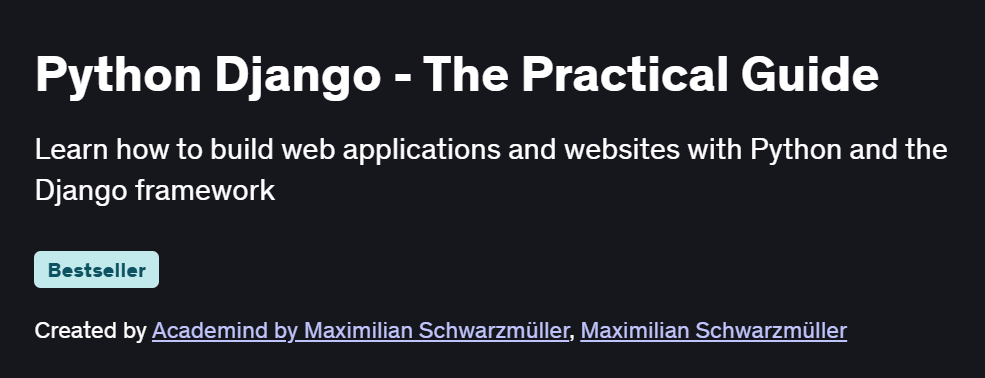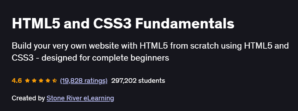What will you in Python Django – The Practical Guide Course
- Install and configure Django, set up virtual environments, and use the Django CLI
- Build dynamic web applications with Django’s MTV (Model–Template–View) architecture
- Define data models, run migrations, and interact with the database using Django ORM
- Create HTML templates, use template inheritance, and include static assets (CSS/JS)
- Implement user authentication, permissions, and secure form handling
- Develop RESTful APIs with Django REST Framework (serializers, viewsets, routers)
Program Overview
Module 1: Django Setup & Project Bootstrapping
⏳ 45 minutes
Installing Python, pip, virtualenv, and starting a Django project
Configuring settings, URL routing, and the admin interface
Module 2: Models & Database Migrations
⏳ 1 hour
Defining models with fields and relationships (OneToMany, ManyToMany)
Running
makemigrations/migrateand using the Django shell for CRUD operations
Module 3: Views, URLs & Templates
⏳ 1 hour
Writing function-based and class-based views
Mapping URLs to views and rendering templates with context data
Module 4: Forms & Validation
⏳ 45 minutes
Creating Django forms and model forms
Handling form submission, validation errors, and CSRF protection
Module 5: User Authentication & Authorization
⏳ 1 hour
Using built-in auth: user creation, login/logout, password reset
Restricting views with
@login_requiredand permission mixins
Module 6: Django REST Framework Essentials
⏳ 1 hour
Serializers, ModelViewSet, and automatic URL routing
Authentication (Token, Session) and permission classes
Module 7: Testing & Best Practices
⏳ 45 minutes
Writing unit tests for models, views, and APIs with Django’s test client
Code organization, settings modules, and environment-specific configs
Module 8: Deployment & Maintenance
⏳ 45 minutes
Configuring Gunicorn, setting up Nginx reverse proxy
Managing static/media files, setting
DEBUG=False, and usingcollectstatic
Get certificate
Job Outlook
- Django skills are in high demand for roles such as Python Developer, Backend Engineer, and Full-Stack Developer
- Widely used in startups and enterprises for rapid web application development and REST API backends
- Foundation for scaling applications, microservices, and integrating with front-end frameworks (React, Vue)
- Prepares you for cloud deployments (AWS Elastic Beanstalk, Heroku) and advanced Python ecosystems
Specification: Python Django – The Practical Guide
|





